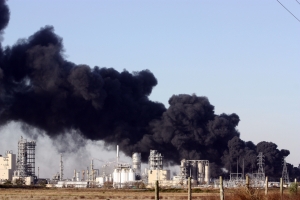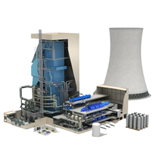Peter Anderson, Chief Executive of the Australian Chamber of Commerce and Industry – and also a member of the government’s Business Round Table on Climate Change – told a Printing Industries CEO lunch that "carbon" and "tax" were two distinct issues.
"While the Carbon Tax issue is highly political, a great disservice is done to the issue by the oversimplification which characterises political debate," Anderson told the gathering.
"In this instance, this has led to a most unfortunate view that to be opposed to the tax equates to being opposed to the sustainability agenda – a view which is simply not true.
"Many manufacturing businesses, and printers are a great example, are strongly committed to sustainability, not just from an ideological viewpoint but because it makes sense on an economic basis, driving stronger business and meeting commercial imperatives."
While a carbon tax remains the Gillard government’s key policy for tackling climate change, Anderson reported that the business community believes the mechanism is flawed and is also most concerned about the timing proposed for implementation.
"Trying to bring about a faster rate of change to our behaviour and methods of production is not a silly idea," he said.
"The motivation is right – but the mechanism and the timing are both open to debate and, I believe, are significantly flawed.
"Firstly, structuring it as a tax, at least until a proper global emissions trading scheme is implemented, means it is a policy likely to collect revenue rather than drive behavioural change, making it unlikely to achieve the latter objective. Offering so much compensation also blunts the instrument.
"Secondly, introducing a tax here in the absence of international agreement means we will suffer considerable pain...for little gain. While Australia naturally wants to be part of the solution, implementing a carbon tax while competitors remain unfettered by such costs means this tax is likely to impact disproportionately on our industrial base – and that impact will be difficult to mitigate.
"Australian manufacturing already faces tough competition from countries where wages and conditions are not as high as they are here, and where skills and innovation are fast catching up.
Anderson said while we do not want to see our standards reduced, the reality in a trade-exposed economy is that we must make every other post a winner. In the past, our access to relatively cheap sources of power has been a key factor in our ability to compete.
"If we remove that competitive advantage, where are we going to make up that ground?" he asked.
Even if a carbon tax were accepted as the correct mechanism, Anderson points out, timing is critical and, in the view of most business leaders, the broader economic situation and particularly the impact of the high Australian dollar make this the worst possible time for such change.
"Any major reform which is going to affect the economy has to work in the real world context of people doing business," he said.
"Current trading conditions would make a strong case for any government to hold back on policy change that would embed costs into globally competing products and services."
Despite these views, Anderson believes current political instability makes it almost impossible for the government to change course without it being seized on as a sign of weakness by the media and opposition.
"Regrettably, I have to say that this issue is deeply related to the politics which formed the current minority government," Anderson reported.
"Will it be implemented in July 2012? Who knows. That will depend on whether this current government is in power. If not, however, we’d have to look carefully at what an Opposition government would implement in its place.
"Unfortunately, this simply continues the climate of uncertainty not just in manufacturing but feeding through into general business and consumer sentiment. This is creating a terrible dynamic, with soft demand, difficult international competition and rising domestic costs. Adding a carbon tax to that mix would certainly be a cause for real concern."
While businesses can do little but "wait and see", Anderson says the fight is far from over.
"Peak industry and business groups, including ACCI and Printing Industries, are not going to stop taking our view to government and the parliament," he said.
"In the meantime, my advice would be to continue to work on constructive agendas towards sustainability where they make good business sense. This will always deliver benefits, regardless of government policy or political agendas."







-160x160-state_article-rel-cat.png)
-160x160-state_article-rel-cat.png)









